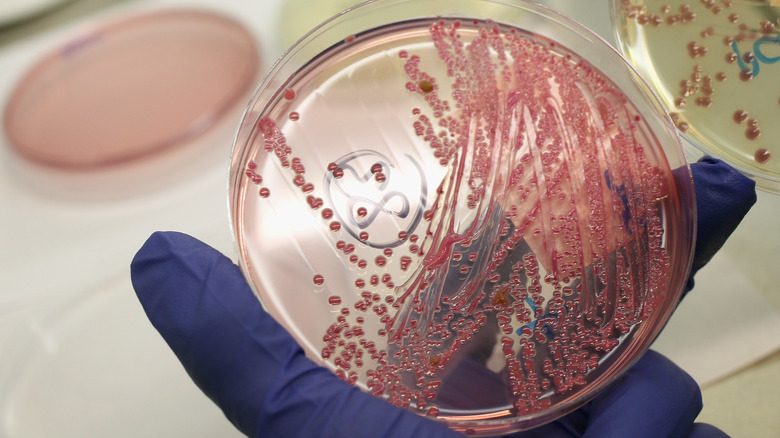The Latest E. Coli Outbreak Has Sickened Dozens Of People
Stomach cramps. Diarrhea. Vomiting.
We all know what symptoms to look for when we suffer from a bout of food poisoning, and chances are we can guess what we might have eaten that caused it. But for at least 29 persons across Michigan and Ohio, the reason behind an ongoing E. coli outbreak which has caused nine hospitalizations thus far remains a mystery, per the CDC. Several media outlets, including NPR and The Wall Street Journal, have described the infection as "fast-moving" and have quoted the CDC as saying that the number of infected people could well be higher than what is currently being reported. The CDC also says that samples are showing that bacteria drawn from those which have been ill show are related genetically, which means those who are suffering from E. coli today may have consumed and gotten sick from the same food.
No health advice for people or businesses can be issued until a food item has been identified, per the CDC.
More people are sick this year than normal
E. coli infections can happen any time of year, but they are especially prevalent during the summer, because there seems to be a spike in the amount of bacteria that is shed through fecal matter, per Food Safety News.
Still, the number of cases involved in this outbreak is said to be higher than normal, leading the state of the state of Michigan's chief medical executive, Dr. Natasha Bagdasarian to issue a statement. Dr. Bagdasarian has said that the "significant jump in cases is alarming." The medical officer also pointed out that 98 cases have been reported so far this year, against 20 cases reported during the same period last year. She added a reminder to "make sure to follow best practices when it comes to hand hygiene and food handling to prevent these kinds of foodborne illness."
To help the CDC identify the cause of the outbreak, the organization is asking those who might be suffering from symptoms to see a doctor and report to the local health department. Because symptoms also kick up between three to four days after the bacteria is ingested, the agency is also asking confirmed cases to make a note of everything consumed the week before symptoms become apparent, per NPR.

